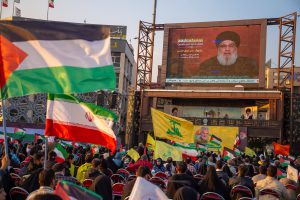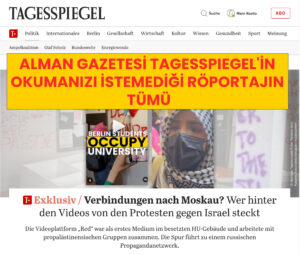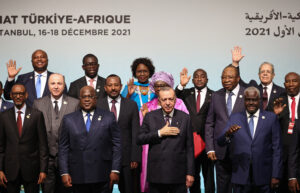In the Kobanê case, one of Türkiye’s largest political trials, extreme sentences were handed down to Kurdish politicians. In the trial of 108 people, including officials and members of the People’s Democratic Party (HDP), 24 were convicted and 12 were acquitted. Five of the convicted defendants were released due to the time they had already served in prison. The cases of the other defendants, however, went differently.
Former HDP Co-Chair Selahattin Demirtaş was sentenced to 42 years in prison for numerous charges, including disrupting the integrity of the state and inciting crime. Former HDP Co-Chair Figen Yüksekdağ received a 30-year three-month prison sentence for similar charges. Prominent HDP figures Gültan Kışanak received 12 years, Sebahat Tuncel 12 years, Nazmi Gür 22 and a half years, Ayla Akat nine years and nine months, Alp Altınörs 18 years, and Mardin Metropolitan Mayor Ahmet Türk 10 years in prison. Altan Tan and Ayhan Bilgen, who had parted ways with HDP politically, were acquitted. Sırrı Süreyya Önder, who played an active role during the peace process, was also among those acquitted.
The acquittal decisions give the impression that they were made both to avoid the image of forcibly detained MPs and to acknowledge those individuals who had taken a stance against the HDP.
The Kobanê case is based on the events that occurred during protests from October 6-8, 2014 against ISIS’s attacks on Kobanê, resulting in the deaths of 37 people. 36 defendants were being tried for the murder of only six victims. According to President Tayyip Erdoğan, the death toll was 52. However, the lives of victims other than these six were probably not the focus of this court because they were likely associated with the HDP. The government memorialized the deceased Yasin Börü and declared all defendants guilty in advance. Erdoğan had targeted Demirtaş with the nickname “Selo,” stating, “Wasn’t it Selo who killed Yasin Börü? Now they are trying to get him out. Whatever the judiciary says, you won’t be able to get him out.” Essentially, Erdoğan was announcing that the final decision was his. However, none of the 36 defendants were found guilty of the deaths. The defendants had been claiming from the beginning that they were being judged by the government, not the judges. Demirtaş said, “We know you have already made your decision, the decree is written. But your decision has no validity. You can’t make us bow down. I won’t allow you to read the decision to my face.”
FROM PEACE PROCESS TO WAR
When ISIS attacked Kobanê, in Erdoğan’s words, almost as if announcing good news, he said, “Kobanê is about to fall,” which mobilized people in the streets. At the time of the events, the negotiation process aimed at solving the Kurdish issue was still ongoing. On February 28, 2015, the HDP and government representatives announced a ten-point statement at Dolmabahçe Palace. It was declared that Abdullah Öcalan, the imprisoned leader of the Kurdistan Workers’ Party (PKK), called for a congress to abandon arms. Strangely, although Erdoğan disregarded the agreement, Öcalan’s letter was read at the Newroz rally in Diyarbakır on March 21. The letter, calling for a congress to lay down arms, was delivered to the HDP with the state’s knowledge, approval, and assistance. On March 22, 2015, Erdoğan’s declaration that he did not find the Dolmabahçe meeting appropriate signaled the end of the process.
Several key factors influenced this decision:
- By deciding to enter the June 7, 2015 elections as a party, the HDP disrupted the Justice and Development Party’s (AKP) plans for a strong outcome from the ballot box.
- Additionally, on March 17, 2015, Demirtaş delivered a five-word manifesto to Erdoğan in a parliamentary group meeting, “We won’t make you president.” The potentiality of Kurdish support in exchange for the peace process was destroyed. Later, both the PKK and the government accused Demirtaş of acting against the agreement reached with Öcalan due to the influence of Turkish leftists within the HDP. In the June 7, 2015 elections, where the HDP received 13% of the vote, the government lost its parliamentary majority. To achieve victory by repeating the elections, the government reverted to war and implemented tactics to terrorize Kurdish politics.
- Dismantling the autonomous structure established in northern Syria under the leadership of the Democratic Union Party on the civilian side and the People’s Protection Units (YPG) on the military side was one of the state’s main demands during the İmralı talks. For Öcalan, who rejected this, Rojava was a red line. The PKK diverted attention from Syria by digging trenches in certain cities in Türkiye and declaring self-governance in HDP municipalities.
BUILDING A NEW REGIME WITH CONFLICT STRATEGY
The climate of conflict, wherein ISIS killed young people going to aid Kobanê in Suruç, bloodied the peace rally of unions and professional chambers in Ankara. Turkish warplanes bombed PKK camps, the PKK resumed its affront, and HDP offices were attacked. Elections were then repeated on November 1, 2015. Erdoğan regained the parliamentary majority. The US-supported Syrian Democratic Forces (SDF) captured Tel Abyad from ISIS, bridging the gap between the autonomous cantons of Kobanê and Jazira and then moved towards Manbij east of the Euphrates, which Ankara coded as the establishment of a “terror corridor.” The YPG spoke of advancing to Afrin by clearing both ISIS and the Turkish-supported Free Syrian Army. This move triggered Türkiye’s Euphrates Shield Operation in Syria on August 24.
Although the attack was supposedly against ISIS, the main target was to block the SDF. During the process leading to the July 15, 2016 coup attempt, the alliance between the AKP and the Gülen Movement turned into a war, with the Nationalist Movement Party (MHP) becoming the government’s new partner. The main cement of this partnership, which replaced the parliamentary system with an authoritarian presidential regime, was war. Military operations in Syria and Iraq continued to intensify.
Attempts to dismantle the de facto autonomous structure in Syria continued with the Olive Branch Operation in 2018 and the Peace Spring Operation in 2019, while the opposition was paralyzed internally. The Kobanê case, seen among Kurds as a “political genocide,” was initiated four years after these events. When the government realized it couldn’t keep Demirtaş, who was arrested in 2016, in prison on existing charges, it included him in the Kobanê case in 2019. Until December 30, 2020, there was no indictment.
A CASE OF REVENGE
The Kobanê case can be seen as a case of revenge in the following ways:
- Demirtaş, who tried to disrupt Erdoğan’s presidential plans, is being punished. Additionally, Erdoğan sees it as essential for his political survival to keep a leader, who has gained the favor of not only Kurds but also Turks, in prison.
- While Erdoğan facilitated ISIS’s capture of Tel Abyad with a porous border policy, he eagerly awaited the fall of Kobanê. The case reflects the anger against the resistance operation that saved Kobanê from ISIS.
- The case also stands as the state’s response to the Kurdish pursuit of autonomy in both northern Syria and Türkiye’s Kurdish-populated regions. Thus, Erdoğan is using the Kobanê case to settle scores with Rojava.
NORMALIZATION EXLUDES KURDS
In the local elections on March 31, the HDP pursued a dual strategy. On the one hand, it showed covert unity with the opposition, while on the other, it signaled that if the peace process resumed, it could strengthen the AKP’s hand in places like Istanbul. However, voter preferences caused the AKP to lose. After the election, Erdoğan began talking about the need for normalization to involve the opposition in plans to amend the constitution and to buy silence against austerity policies. In this context, AKP officials met with the People’s Equality and Democracy Party (DEM Party), which replaced the HDP, while Erdoğan met with Republican People’s Party (CHP) leader Özgür Özel.
This trend led to expectations of different outcomes in the Gezi and Kobanê cases. Amid rumors that Erdoğan was considering getting rid of the MHP, signs emerged of a situation similar to the pre-2016 conflict between the AKP and the Gülen Movement within the People’s Alliance. The power struggle within the judiciary and police also revealed itself. MHP Chairman Devlet Bahçeli made statements opposing the release of Gezi defendant Osman Kavala and a possible Kurdish opening, diminishing the possibility that Erdoğan’s intentions might soften. Ahmet Türk also thinks that some people have moved to disrupt the normalization process.
Although the possibility of Kavala’s release is still seen as viable despite the rejection of a retrial request, Demirtaş remains a powerful figure that worries Erdoğan. With the Kobanê decisions, it became clear that the normalization offer did not include the Kurds. While Erdoğan talks about a major war to create a buffer zone along the Iraqi and Syrian borders, the expectation that the normalization initiative could turn into a Kurdish opening was overly optimistic.
Along with this, two possibilities should be considered:
Conditions that would make it possible for Erdoğan to divorce the MHP may not have been formulated yet. Erdoğan’s distant stance on the investigations related to the Ayhan Bora Kaplan gang, which extends to police chiefs, along with the murder of Sinan Ateş, which points to MHP officials, shows that he is not close to breaking ties with Bahçeli.
The AKP-MHP clash emerging in the judiciary branch could also expose Erdoğan’s shady political maneuvers. Regardless, it is also evident that Erdoğan is gradually escaping conditions that would force him into a serious change of direction. Tight cooperation with the IMF and World Bank, raising interest rates, increasing hot-money inflow, achieving manageable stabilization in lira exchange rates, and reducing tensions in Europe-US relations are alleviating Erdoğan’s concerns. For local and global finance capital, Erdoğan is on a path worth investing in. They are only interested in the legal system insofar as it it secures their interests. The fates of Demirtaş and Kavala, however, will remain a hot-button issue.






